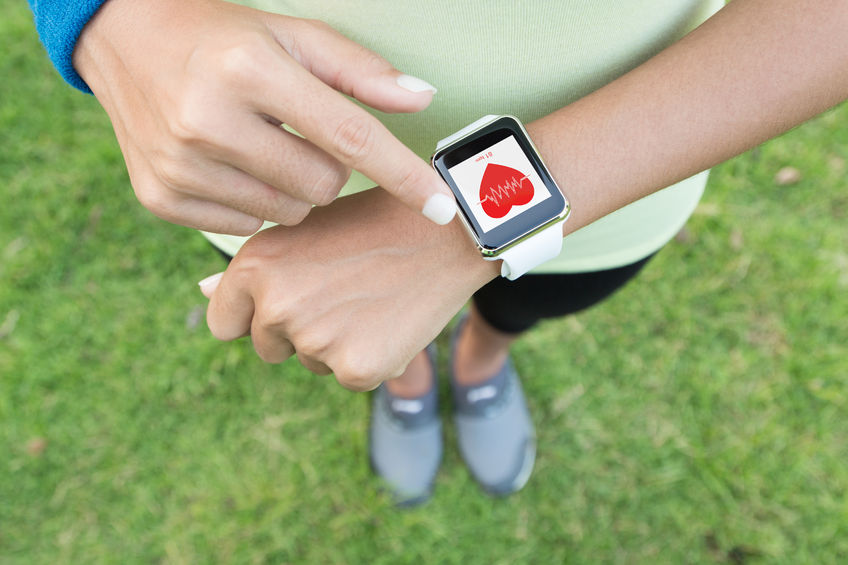
Artificial Intelligence, Machine Learning and Big Data have sped us into the future of technology like a kid on his first roller coaster ride. It’s exciting and fun but a little terrifying and unexpected at the same time. Where we are with technology right now, we often find surprises and unexpected outcomes of our smart tech. What does tech really know about us that we’re not fully aware of? Check out this fascinating story!
Cardiogram is a private health-tracking company. Using a heart rate monitor device, such as a smart watch, the company provides analyses and graphs about heart rate measurements. Cardiogram teamed up with The University of California San Francisco (UCSF) to build a large data set of heart and health data through an online study. Guess what they found? DeepHeart, Cardiogram’s deep neural network (sets of algorithms that recognize patterns, using machine learning to interpret and analyze the data), could be the doctor of the future. Wouldn’t it be nice to save on a doctor’s visit (especially if your deductible isn’t met!) and simply ask your smartwatch how you’re doing?
Obviously, we’ve excessively simplified the watch-as-a-doctor scenario. Here’s what we’ve learned from this: a smart watch can tell if you have a disease although it doesn’t know why.
 DeepHeart can use an Apple Watch to flag potential health ailments. Brandon Ballinger, Cardiogram’s co-founder, hypothesized about turning “wearables people already own—Apple Watches, Android Wears, Garmins, and Fitbits—into inexpensive, everyday screening tools using artificial intelligence.”
DeepHeart can use an Apple Watch to flag potential health ailments. Brandon Ballinger, Cardiogram’s co-founder, hypothesized about turning “wearables people already own—Apple Watches, Android Wears, Garmins, and Fitbits—into inexpensive, everyday screening tools using artificial intelligence.”
This is what they found DeepHeart could do:
- Detect abnormal heart rhythm with 97% accuracy
- Detect sleep apnea with 90% accuracy
- Detect diabetes with 85% accuracy
- Detect hypertension with 82% accuracy
It can be pretty incredible what Big Data can do for us. For instance, according to TechCrunch, more than 1 in 4 of the 100 million U.S. adults living with pre-diabetes or diabetes have gone undiagnosed. How many of those people would prefer a smart watch, teamed up with AI-based algorithms, to detect diabetes instead of finger pricks and blood glucose testing?
It’s going to be interesting to see which innovations get the investments. The landscape of FDA approvals for wearables is a fascinating arena to watch. You can find players in the game and on the bench: those who’ve earned approval and those trying to get it, such as Dexcom with a glucose tracking smartwatch. Or there’s the KardiaBand, which is the first Apple Watch band approved by the FDA that allows EKG tracking. At this time, there are no approvals for devices that could actually dish out medical diagnoses, but the FDA has a pilot program with some big companies (Apple, Fitbit, Samsung, etc.) to fast track health developments. Once the ball gets rolling, it’s going to pick up a lot of steam!
What can Big Data do for you? How about getting a program going at your organization that rewards people for improving fitness and health using wearables? Check out how some of the big health insurers are incentivizing it and model something for your business. Bring on a new data-driven healthcare system!
